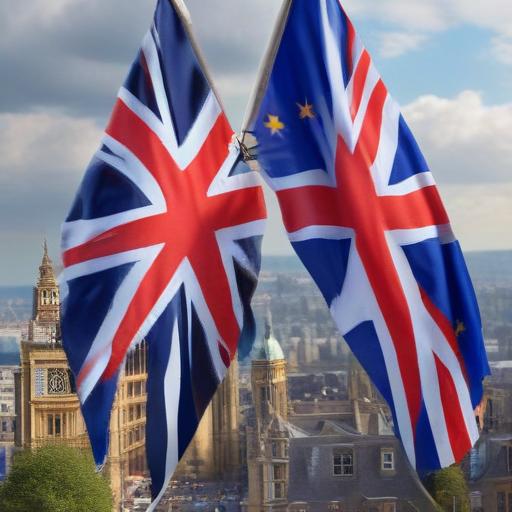The United Kingdom and the European Union have reached a significant agreement aimed at redefining their relationship post-Brexit, easing various travel and work restrictions that impact millions across the continent. This newly formed pact was established during a summit in London on Monday, concluding months of intense discussions between British leaders and EU officials.
EU Commission President Ursula von der Leyen characterized this moment as historic, stating, “We’re turning a page. We’re opening a new chapter in our unique relationship.” UK Prime Minister Keir Starmer echoed her sentiments, asserting that “Britain is back on the world stage.”
This agreement addresses numerous contentious issues, including trade, defense, migration, and work, with both parties hopeful it will help to mend the frayed ties resulting from years of tension. A key highlight of the deal includes the reduction of bureaucratic barriers for trade, particularly easing restrictions on British exports of food and drink to the EU, which Starmer’s office claims could help lower food prices and expand options for consumers. Furthermore, a move towards a “common sanitary and phytosanitary area” is expected to bring more stability and certainty for agricultural sectors on both sides.
The EU, which made up 41% of the UK’s exports last year, is a critical trading partner. The UK, in turn, is a vital market for EU goods, and improving trade relations is paramount. The deal also involves a 12-year extension allowing EU fishing boats access to British waters and broader discussions regarding energy market collaboration to enhance security and lower costs.
In terms of defense, the agreement solidifies UK-EU military collaboration, which has intensified since the outbreak of the Ukraine conflict. The UK will now participate in a Europe-wide defense program, enabling British companies to pursue security contracts alongside their European counterparts—a move welcomed by von der Leyen as vital for increasing military readiness.
The deal also proposes a youth mobility scheme to enable young Europeans to work and travel in the UK, along with the reinstatement of access for British students to the Erasmus program, facilitating study opportunities across Europe. Moreover, British travelers will benefit from using e-gates at airports, joining EU nationals in more efficient processes.
Although public sentiment largely supports Starmer’s approach, there are voices from the populist right who believe the agreement compromises UK sovereignty. Critics like Nigel Farage view the deal as a concession to Brussels, particularly with extended fishing rights. Nonetheless, Starmer aims to steer the discourse towards a narrative of progress and renewal, pushing for a future focused on practical solutions for British citizens.
This landmark deal comes with the hope of mending relations and fostering cooperation, reflecting a mutual desire to move beyond the tumultuous debates of the Brexit era while addressing public concerns and the country’s evolving needs.
